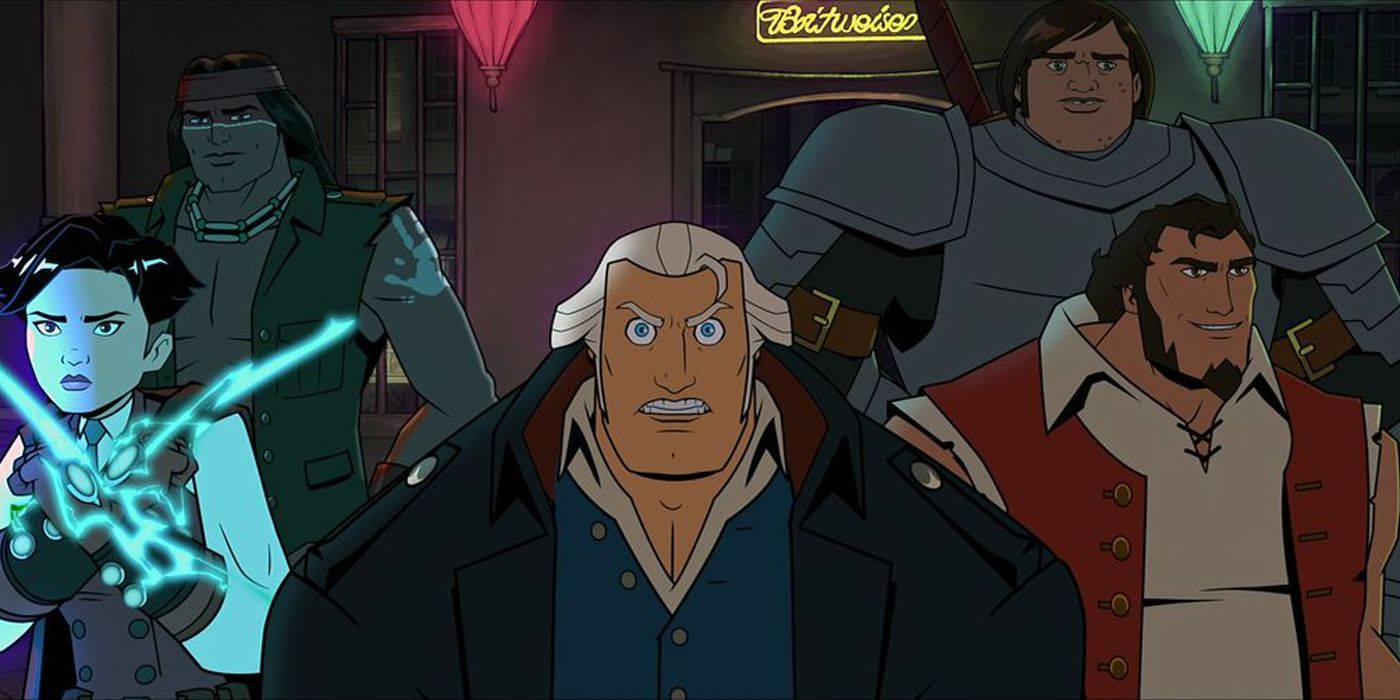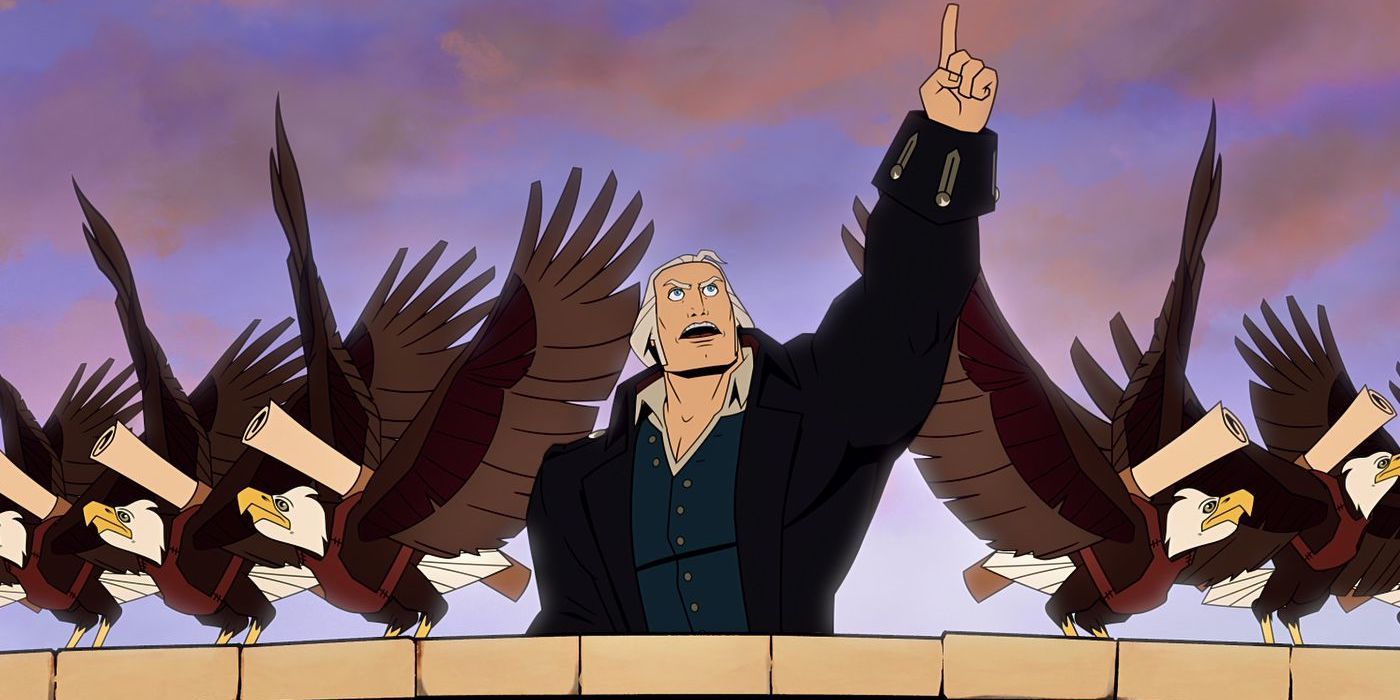
The Netflix movie America: The Motion Picture has one major flaw: it fails as a satire. The adult animated feature had a lot of potential: it boasts the creative talent behind Archer and Spider-Man: Into the Spider-Verse, and it is based on an intriguing revisionist-history story. The talented cast in America: The Motion Picture is full of actors at the top of their comedic game — so how did a comedy with so much going for it result in such an unfunny mess? The answer lies in its approach to satirizing history.
America: The Motion Picture is an intentionally anachronistic take on the story of the American revolution. It gleefully embraces the most extreme take on the subject, infusing its story with a steampunk aesthetic and references to action franchises like the MCU and even Star Wars. Its logline describes the movie as "a tongue-in-cheek riff on the American Revolution," although the movie has little in common with historical events, seemingly reveling in its own ignorance of history.
Despite its cast being full of talented — and hilarious — actors like Judy Greer and Will Forte, America: The Motion Picture is largely an unfunny film. This is partially because so many of the jokes are tired or repetitive: lazy stereotypes about British people having bad teeth and liking tea are not enough to carry a film. The bigger issue, however, is that the satire itself is flawed. Typically, satire involves parody or caricature as a means of highlighting the inherent problems in its subject. In its most common 21st-century form, the genre is as much social commentary as it is comedy. The purpose, then, is to encourage change through ridicule.

America: The Motion Picture doesn't have a cohesive, social commentary underlying its parodic depiction of the American Revolution, and in general, it lacks self-awareness. The best (and funniest) satirical films are those that make the target of the parody the butt of the joke: Borat works not just because Sacha Baron Cohen is unafraid to look foolish, but mainly because the humor works to expose (and discourage) systemic racism, sexism, and homophobia. Hot Fuzz, while more of a pastiche, also uses satire to poke fun at the obsessive lengths to which the rural town of Sandford will go just for the sake of maintaining its "village of the year" status. America: The Motion Picture doesn't pull back the curtain on America's Founding Fathers — instead, it glorifies and celebrates these white men as violent, beer-drinking "bros." Nothing about this movie inspires change.
American: The Motion Picture "punches down" with its jokes — whether it means to or not. Major BIPOC historical figures are reduced to token characters who have little to do with their real-life counterparts: Geronimo, an Apache medicine man and leader of his people, is the sole Indigenous character with a speaking part, and he's included mainly to be the butt of jokes about how much First Nations people have suffered at the hands of racist colonizers. Similarly, the folk hero John Henry — whose name is barely acknowledged, instead being referred to as the Black blacksmith — is an overweight, sassy side character. While America: The Motion Picture does raise problems with systemic racism in America, it does so while still glorifying the white Founding Father characters and simultaneously disempowering the Black, Indigenous, and female characters — to the point where Geronimo literally loses his hand, while the white characters get through the movie largely unscathed. Had America: The Motion Picture been more successful in making Geroge Washington and Sam Adams the butt of the joke — rather than the heroes and victors — it would have gone a long way in make the feature film tolerable to watch.
https://ift.tt/3qOQu51
July 06, 2021 at 12:35AM




